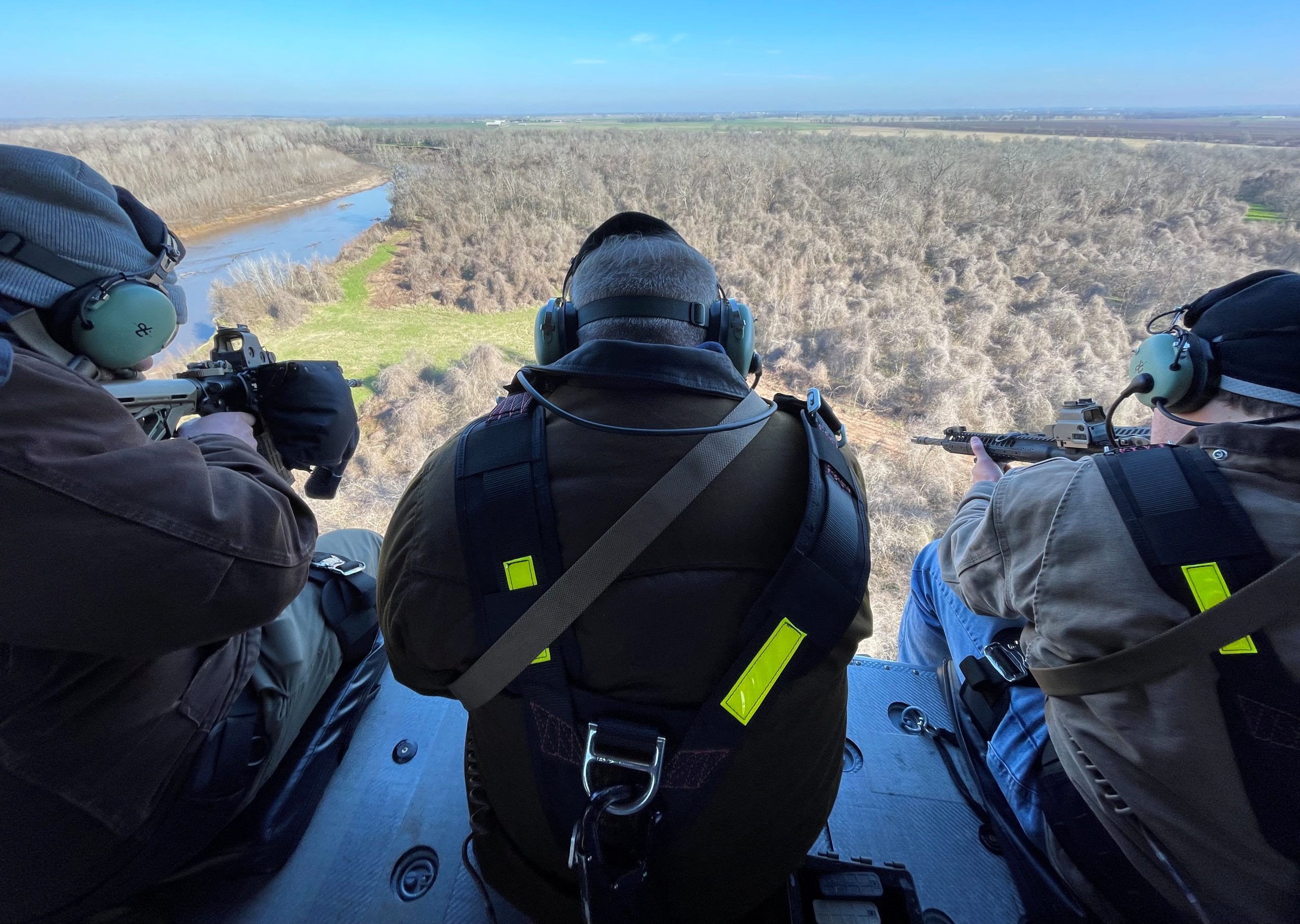
[elfsight_social_share_buttons id=”1″]
On a bitterly cold January morning, a helicopter soars above central Texas farmland. The four passengers hanging outside the aircraft are hunting — going after feral hogs, an invasive species in the southeastern United States.
In Bryan, Texas, the company Helibacon charges hunters about $3,000 to spend two hours in a helicopter, gunning down wild pigs with everything from assault rifles to fully automatic submachine guns.
First introduced to North America by early explorers hundreds of years ago, feral hogs can wreak havoc on agriculture, tearing up soil and eating plants. The animals can weigh more than 400 pounds and travel in herds called sounders, according to Texas A&M AgriLife Extension Service program specialist Mikayla Killam.
“Really, on the Texas landscape, the only thing that can take on an adult feral hog is going to be a mountain lion and an alligator. And we just don’t have enough of those in the state to be managing these populations,” she said.
According to the Texas Parks and Wildlife Department, an estimated 6.9 million feral hogs roamed the United States in 2016 — with more than one-third of that population, 2.6 million hogs, living in Texas.
Killam said the invasive species is managed by trapping, conventional hunting on the ground, and aerial gunning by both wildlife services and commercial companies like Helibacon.
For hunters like Mitchell Birkett, a 21-year-old Texas A&M University student, going after the hogs was a chance to combine pleasure with purpose.
“Sure, you get a lot of fun out of it and you get to shoot some big guns,” Birkett said. “But you’re also, you know, I think taking care of a really big problem that faces Texas.”
Copyright 2023 Thomson/Reuters
